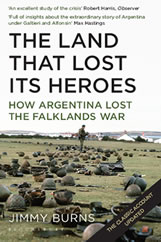An Anglo-Spaniard’s Euro final in Berlin
I was born in Madrid , the son of a Spanish mother and English father, educated in England, but brought up bilingually and in a constant interchange between the two countries I inherited. I am an Anglo-Spaniard in heart and soul , my loyalties when it comes to football never defined by national prejudice but by my love for a game played at its best , with passion, beauty and decency.
Certainly , as an Anglo-Spanish football fan, I couldn’t have hoped for a better major international final. Spain has shown itself the best of the tournament so far , winning all its games, with style and commitment its creativity on an off the ball, and goal scoring unrivalled, not least a goal in the semi-final. against France by the sixteen-year-old FC Barcelona player Lamine Yamal.
I was in Madrid on Tuesday , in a bar largely filled with Real Madrid fans, setting aside their club prejudices and celebrating the rites of passage to international stardom of this Barca teenager whose photograph of him as a baby alongside a smiling adult Messi taken in 2008 went viral on social media this week.
The following evening, I watched England beat the Netherlands. This time I took refuge in the safety and comfort of my Madrid hotel room, before opening my balcony to the chant of a group of drunken English tourists chanting that hymn to shattered hopes and dreams since England last won a major international football tournament -the World Cup final in Wembley- fifty-eight years ago, ‘It’s coming Home, Its coming Home, football’s coming home.’
England have been what they are capable of, after underperforming through the early matches of Euro 2024 tournament. Close to full-time against the Dutch team on Wednesday , a winning goal by Aston Villa’s Ollie Watkins booked a place in English folklore football, underlining England’s resilience and ability to recover from impending disaster.
Before that , there was Jude Bellingham who after failing to replicate his best form, produced a stunning 95th minute bicycle kick goal, equalising in a quarter final when England was just seconds away from defeat, before going on to beat Slovakia in extra time.
That Bellingham is with the England team and yet owes his international stardom to his success playing for the Spanish and European club champions Real Madrid epitomises the cultural fluidity and quality that will prevail despite any instincts of nationalist bigotry on Sunday .
Among Bellingham’s English team colleagues are Arsenal’s Declan Rice and Bukayo Saha , and Manchester City’s John Stones, Kyle Walker and Phil Foden who at club level between them play for arguably two of the best managers in the Premier League, Arsenal’s Mikel Arteta and Manchester City’s Pep Guardiola, both Spaniards . Spain meanwhile has its substitute goalkeeper Arsenal’s’s David Raya, and among its first-choice players Manchester City’s Rodri , and Chelsea’s Marc Cucurella.
Both Spain and England draw on the player quality that exists in their respective national leagues, the best in Europe, and a long and proud football history, with England the founder of the game, and Spaniards laying their own claim to supremacy in a game that they discovered thanks to the English but which they have developed in their own creative way.
All the above will of course not mitigate against the fact that support for one team or the other on Sunday will split within and beyond national borders , but a cultural symbiosis will be more than evident, showing the extent to which national identity in football is not necessary one of bigotry fuelled by history, mythology and politics.
Both England and Spain have had to face up to deal with the toxic nature of racism in their football, as result of attitudes in politics and society at large. Human empathy – expressed as a respect of racial diversity and a belief in the capacity of football to restore a nation’s belief in itself as a decent society with a sense of the common good – has been at the heart of the English team moulded by Gareth Southgate. All but three of his first-choice players are from immigrant family backgrounds, who have maintained their sense of integrity despite being victims of racial abuse.
By contrast the fact that the Spanish national team shows, as do Spanish clubs, less of a racial mix, is a reflection of a less multi-racial society than England’s. And yet two of Spain’s star players Lamine Yamal and Nico Williams owe their identity to being born in Spain to immigrant parents in regions, the Basque country and Catalonia , with strong cultural sentiments of their own.
Their elevation to hero worship among Spanish fans of varying club and political prejudices during the tournament is a further reminder that football has the capacity to build human bridges .
I for one hope that the best team wins on Sunday even if I suspect that the outcome of the match will define which of two countries will feel a greater a sense of national elation and coming together , something which both England and Spain need in almost equal measure.
Ahead of the Anglo-Spanish match , I asked my good friend and spiritual adviser Fr Shaun Middleton -a Welshman- how I should discern my own feelings as an Anglo-Spaniard. Back came his answer: “Rejoice with the winners, empathise with the losers and give thanks to the sportsmanship of the game.” Amen to that.


Comments